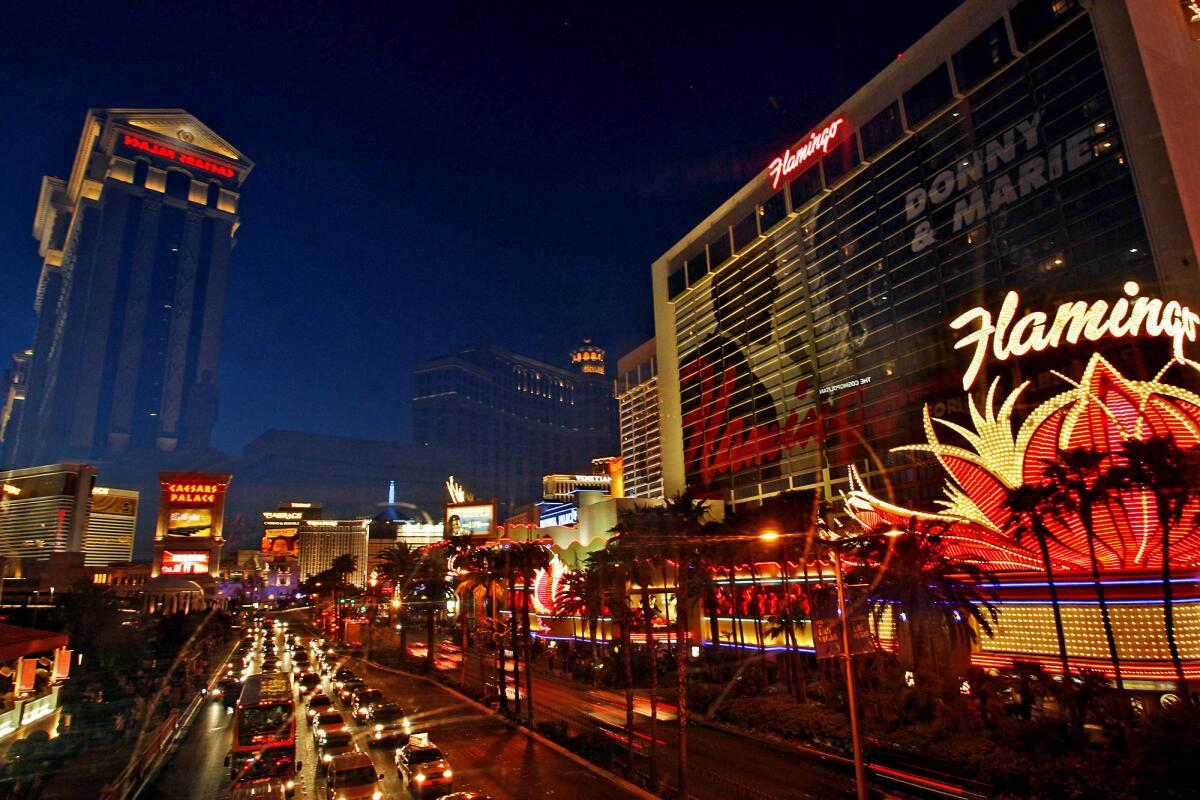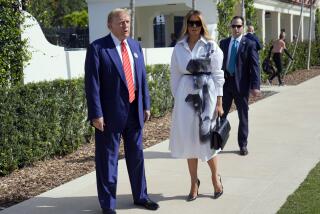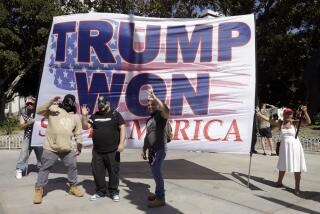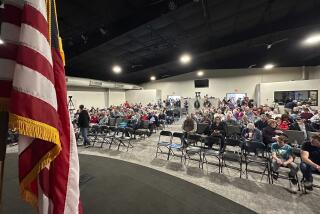Republicans narrow field for 2016 convention and a myth is deflated

There was — if not exactly dancing in the streets — a small frisson of excitement surging through half a dozen of America’s great cities Wednesday as word emerged that six finalists had been chosen as the possible site of the 2016 Republican National Convention.
They are, in impartially alphabetic order: Cincinnati, Cleveland, Dallas, Denver, Kansas City and Las Vegas.
Two cities were eliminated from consideration by the party’s site selection committee: Columbus, Ohio, and Phoenix, the latter, doubtless, to the dismay of sun worshippers who savored nothing more than the prospect of baking in the Sonoran Desert’s 120-degree summer heat. No reason was given for the two cities getting the heave-ho.
A final choice is months away but the fact so many people are paying attention points up one of the sillier tropes of presidential politics, the notion that the convention location has even the slightest bearing on the campaign’s outcome.
Much has been said and written — and undoubtedly more will come — about the relative importance of various locales still in contention: Ohio, as a perennial swing state; Colorado, as a place to bookend the Obama years (it was at Denver’s football stadium, amid collonaded spendor, that Barack Obama was installed in 2008 as the Democratic nominee), or Nevada, home to financial angel Sheldon Adelson and a once-red state now tinted blue in good part due to Nevada’s growing Latino electorate.
None of which will probably matter a whit.
Conventions, which used to actually select the party’s nominee in a fever of sweat, horse-swapping and close-quarters contact, have become nothing more than climate-controlled television advertisements for the two major political parties. The convention hall is essentially a soundstage. Apart from a few establishing shots — a city skyline, a local landmark or, imagine, the Vegas Strip! — and the events could just as easily be located in a cow pasture in Osceola, Iowa.
It is hard to imagine that a single voter anywhere in America would say, “I disagree with Candidate X and everything he/she stands for but since they held the convention in _______, by golly I’ll vote for him/her for president!”
Indeed, the corrolation between convention locale and victory in November is close to nil. To consider just the last few election cycles, Republicans convened in Florida in 2012 and Democrats in North Carolina. Each of their presidential nominees lost the state just a few months later.
Republicans met in 2008 in Minnesota, which they lost, and New York in 2004, with the same result. It would be hard to ascribe the Democrats’ victories in Colorado in 2008 (by 10 percentage points) or Massachusetts (as blue as a cloudless sky) in 2004 to the gathering of party delegates in Denver and Boston, respectively.
Wherever the parties meet, there will be the inevitable talk of economic benefit to the host city. In 2012, the convention in Tampa, Fla., supposedly yielded $400 million in economic activity, whatever that means. (A run on Clint Eastwood-inspired furniture?) In truth, there are much larger and more lucrative conventions, though a city is not likely to draw several nights of prime time TV coverage and more than 10,000 reporters to cover, say, a meeting of the American Medical Assn.
Among the most self-interested parties, aside from the cities bidding to host the convention, are the campaign operatives, party strategists and political journalists who plan to cover the event, which is why they tend to follow the selection process far more closely than a normal person. (They will attend en masse, regardless of location.)
Since it’s all about a good time and the off-hour attractions, one could, for example, sing the praises of Cleveland, home to the Rock and Roll Hall of Fame. But that might betray partiality.
A final decision by the Republican National Committee is due in the late summer or fall. The Democrats, meantime, are due to sent out notice to cities around the country next month asking if they would care to formally bid to host the party’s gathering in the summer of 2016 . Democrats are expected to make theirselection around the end of this year or early in 2015.
Twitter: @markzbarabak
More to Read
Start your day right
Sign up for Essential California for news, features and recommendations from the L.A. Times and beyond in your inbox six days a week.
You may occasionally receive promotional content from the Los Angeles Times.







